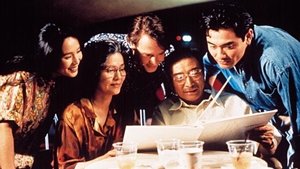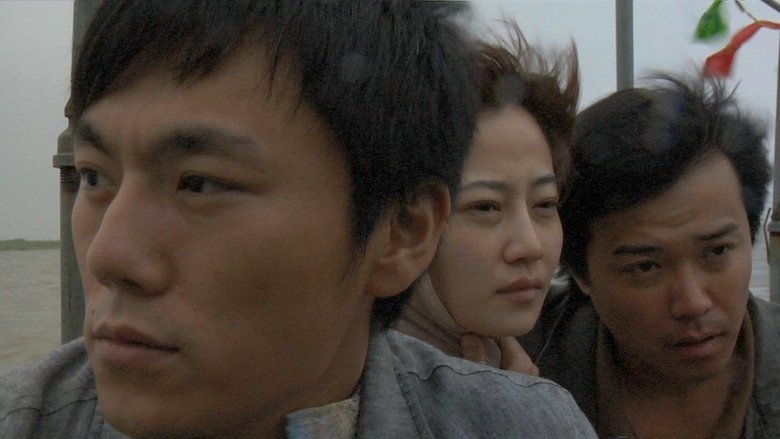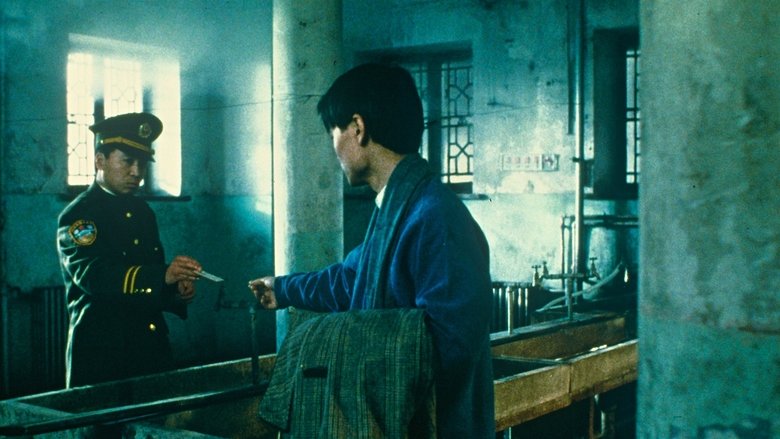Seeking censored love: Essential chinese LGBTQ+ films
Exploring LGBTQ+ stories in Chinese cinema often means navigating complex landscapes of censorship and societal norms. These films offer a glimpse into lives and loves rarely seen openly.



Delving into the world of Chinese LGBTQ+ cinema reveals a fascinating and often challenging journey. While direct representation faces significant hurdles due to state censorship, filmmakers and storytellers have found innovative ways to explore themes of identity, love, and struggle.
The landscape includes everything from groundbreaking historical epics like Farewell My Concubine, which subtly wove complex emotional and sexual identities into its narrative, to more contemporary films that push boundaries in nuanced ways. The popularity of Boys' Love (BL) novels online, and their subsequent adaptations (often facing intense scrutiny or censorship), highlights a strong public appetite for these stories, even if they must exist in liminal spaces.
Films like Lan Yu became landmark moments, achieving international recognition despite the sensitive subject matter within China. Others, like those by directors navigating the 'underground' scene, capture raw, unfiltered perspectives. This collection represents a spectrum of these efforts, showcasing the resilience and artistry required to bring these essential stories to the screen against considerable odds.
5. The Wedding Banquet (1993)
Ang Lee's "The Wedding Banquet" is a groundbreaking romantic comedy-drama that masterfully blends cultural clash with heartfelt storytelling. While not based on a novel and less focused on mainland Chinese censorship, this Taiwanese-American co-production was a key film in bringing gay narratives into mainstream Asian cinema. The story revolves around a gay Taiwanese man living in New York who, pressured by his traditional parents to marry, arranges a fake marriage with a Chinese artist seeking a green card.
The arrival of his parents for the 'wedding banquet' leads to hilarious misunderstandings and emotional confrontations as the elaborate ruse threatens to unravel. The film navigates themes of filial piety, cultural expectations, and the struggle for authenticity with warmth and humor. It was a critical and commercial success, earning an Oscar nomination and a Golden Bear at the Berlin Film Festival. A charming and significant film that uses comedy to explore universal themes of family acceptance and identity.

4. Spring Fever (2009)
Lou Ye's "Spring Fever" is a raw, intimate, and emotionally charged portrayal of turbulent relationships in contemporary China. Filmed clandestinely in Nanjing to avoid censorship, the movie follows a man hired to spy on his wife's lover, only to find himself drawn into the complicated lives of the people he's observing, particularly the lover's male partner. The film eschews melodrama for a handheld, almost documentary-like style that immerses you in the characters' chaotic emotional landscape.
The narrative weaves together multiple relationships, focusing on the complexities and pain of love and desire in a society where certain connections remain taboo. It's a film about longing, betrayal, and the search for connection, beautifully shot despite the difficult conditions under which it was made. "Spring Fever" earned Lou Ye a screenwriting award at Cannes, a significant achievement given its production challenges. It offers a viscerally honest look at hidden lives and loves.

3. East Palace, West Palace (1996)
"East Palace, West Palace" is a fascinating and intense chamber piece that provides a stark look at the intersection of personal identity and state power in China. Set almost entirely within a police interrogation room over a single night, the film pits a young, openly gay writer against a seemingly straight police officer. What begins as a standard interrogation takes unexpected turns as the power dynamics shift and uncomfortable truths are revealed.
Director Zhang Yuan crafted this film during a period of strict censorship, leading to its controversial nature and limited release. The dialogue is sharp and provocative, exploring themes of desire, repression, and the state's gaze on its citizens' private lives. It's a claustrophobic yet compelling watch, relying heavily on the performances of the two leads to generate tension and explore the complex push-and-pull between them. This film is a bold statement on sexuality and authority, and a testament to filmmaking under challenging circumstances.

2. Farewell My Concubine (1993)
Step into a world of breathtaking beauty, tragic destiny, and complex identities with "Farewell My Concubine". Chen Kaige's Palme d'Or-winning masterpiece is an epic saga spanning decades of Chinese history, centered on the intense, lifelong bond between two Peking Opera performers. While not based on an explicitly gay novel, the film delves deeply into themes of love, identity, and performance, exploring the ambiguous lines between stage persona and real life, and the profound, often unrequited, love one character holds for the other.
The film's scale is immense, featuring stunning cinematography and production design that recreate pivotal moments in 20th-century China. The performances by Leslie Cheung and Zhang Fengyi are legendary, capturing the passion, rivalry, and deep codependency of their characters. "Farewell My Concubine" faced significant censorship challenges upon its initial release in China, highlighting its bold exploration of themes considered sensitive at the time. It's a visually gorgeous and emotionally resonant film that lingers long after the credits roll. An absolute must-watch classic.

1. Lan Yu (2001)
Prepare to be moved by "Lan Yu", a powerful and poignant film that stands as a landmark in Chinese queer cinema. Directed by Stanley Kwan, this movie is based on the anonymous online novel "Beijing Story", which gained underground popularity due to its frank depiction of a relationship between two men in Beijing. The film fearlessly brings this story to life, following the complex and often turbulent romance between a wealthy businessman and a younger, naive student.
The performances are absolutely captivating, particularly from Hu Jun and Liu Ye, who convey a deep emotional connection that feels incredibly real. "Lan Yu" was shot discreetly in Beijing and released in Hong Kong and internationally, circumventing mainland censorship at the time. It's a courageous film that explores themes of love, identity, and survival against a backdrop of societal pressures and political change. This is essential viewing for understanding the landscape of LGBTQ+ representation in Chinese-language film and the challenges filmmakers face.

